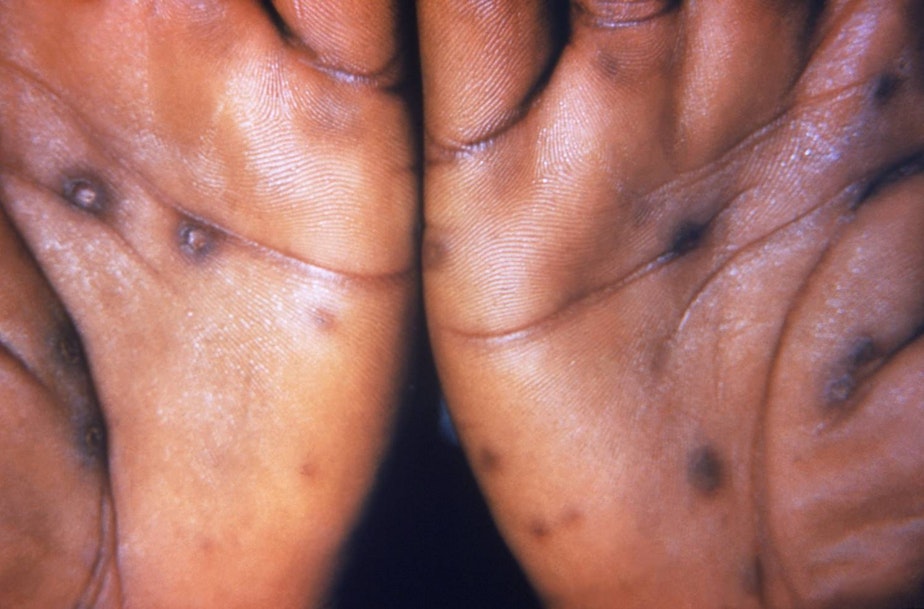Syphilis cases are 'skyrocketing' in King County. Who’s most at risk?

Recently released data from the CDC shows syphilis cases are at a 74-year high in the United States. The surge in infections has Public Health – Seattle and King County concerned about the rising local epidemic.
In an audio statement, UW Medicine infectious disease specialist Dr. Meena Ramchandani said syphilis transmission is most prominent among men who have sex with men, but women are contracting the infection with “skyrocketing” frequency.
“A large proportion of those syphilis diagnoses in women are asymptomatic,” Ramchandani said. “What that means potentially, [is] … there's a large reservoir of undiagnosed infections that are circulating in the community.”
According to the CDC's 2022 STI Surveillance Report, more than 207,000 cases of syphilis were detected in the past 2 years — the highest national case count since 1950. Ramchandani noted a 90% increase in syphilis cases among women in particular between 2020 and 2022 in Seattle and King County.
RELATED: Syphilis among newborns continues to rise. Pregnant moms need treatment, CDC says
“[Infections have] been increasing since the early 2000s and we're continuing to see this increase,” she said. “What we've seen since about 2013 [is] an increase in syphilis in women and those capable of becoming pregnant and [in] heterosexual men, which we hadn't seen as much before.”
In pregnant people, syphilis can lead to fetal demise and other congenital impacts.
A national shortage of antibiotics that can treat syphilis infections also has health officials worried. Last month, the FDA temporarily approved the import of syphilis-treating drugs from a France-based pharmaceutical company.
Officials have yet to pinpoint an exact cause for the rise in syphilis cases, but Ramchandani said it could be due to several factors, including decreased access to quality sexual health care and cuts to funding for sexual health care and public health programs.
Another possible reason for the rise in syphilis cases is decreased awareness about the disease among individuals, communities, and even healthcare providers who “are not necessarily comfortable with diagnosing syphilis and managing syphilis,” Ramchandani said.
She pointed to the story of a patient who, despite showing symptoms of the disease for months, had difficulty receiving a diagnosis.
“She thought she was in a monogamous relationship. And she had seen four different providers until someone did a biopsy of her rash, and they saw syphilis everywhere,” Ramchandani said.
It’s important to keep talking about syphilis to help increase awareness, Ramchandani added.
“People need to be aware that syphilis is back in our community. And [clinicians] need to be educated in that to help our patients.”
Public Health – Seattle and King County recommends that the following groups be tested for syphilis:
- Sexually active individuals (Cis-women, and cis-men who have sex with women (including pregnant persons), and men who have sex with men).
- Users of injection drug use
- Methamphetamine or non-prescription opioid users
- Those who may deal with homelessness
- Individuals who participate in transactional sex
- People who have a history of incarceration
- Those who may have a history of syphilis in the last two years should be tested annually and whenever they present for care up to every three months.




